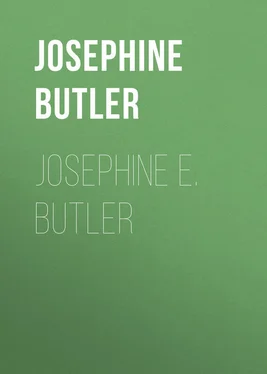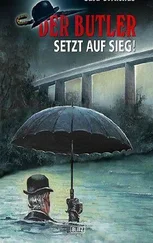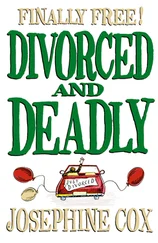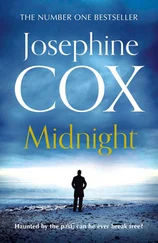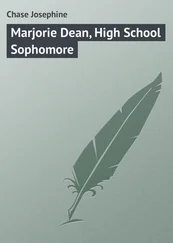Josephine Butler - Josephine E. Butler
Здесь есть возможность читать онлайн «Josephine Butler - Josephine E. Butler» — ознакомительный отрывок электронной книги совершенно бесплатно, а после прочтения отрывка купить полную версию. В некоторых случаях можно слушать аудио, скачать через торрент в формате fb2 и присутствует краткое содержание. Жанр: foreign_antique, foreign_prose, на английском языке. Описание произведения, (предисловие) а так же отзывы посетителей доступны на портале библиотеки ЛибКат.
- Название:Josephine E. Butler
- Автор:
- Жанр:
- Год:неизвестен
- ISBN:нет данных
- Рейтинг книги:5 / 5. Голосов: 1
-
Избранное:Добавить в избранное
- Отзывы:
-
Ваша оценка:
- 100
- 1
- 2
- 3
- 4
- 5
Josephine E. Butler: краткое содержание, описание и аннотация
Предлагаем к чтению аннотацию, описание, краткое содержание или предисловие (зависит от того, что написал сам автор книги «Josephine E. Butler»). Если вы не нашли необходимую информацию о книге — напишите в комментариях, мы постараемся отыскать её.
Josephine E. Butler — читать онлайн ознакомительный отрывок
Ниже представлен текст книги, разбитый по страницам. Система сохранения места последней прочитанной страницы, позволяет с удобством читать онлайн бесплатно книгу «Josephine E. Butler», без необходимости каждый раз заново искать на чём Вы остановились. Поставьте закладку, и сможете в любой момент перейти на страницу, на которой закончили чтение.
Интервал:
Закладка:
The Greys were a loving family, but of all the family Josephine’s life-long favourite was her sister Harriet, afterwards Madame Meuricoffre. In her she realised the perfect fulfilment of Christina Rossetti’s lines —
There is no friend like a sister
In calm or stormy weather;
To cheer one on the tedious way,
To fetch one if one goes astray,
To lift one if one totters down,
To strengthen whilst one stands.
My sister Harriet and I were a pair, in our family of six daughters and three sons. We were never separated, except perhaps for a few days occasionally, until her marriage and departure from her own country for Naples. We were more, I may venture to say, than many sisters are to each other; we were one in heart and soul, and one in all our pursuits. We walked, rode, played, and learned our lessons together. When one was scolded, both wept; when one was praised, both were pleased. In looking back to those early days, the characteristics which stand out the most in my memory are her love of free outdoor life, of nature, and of animals. It may be said that these are common to most country-born children, but they were very strongly marked in her.
Among the many good dogs who were personal friends in our family was one, Pincher, whom she loved much. She was sometimes missing when lesson hours came round, and would be found in Pincher’s kennel, quite concealed from view, holding pleasant converse with her dear dog. A tragic event occurred. Twelve of our father’s sheep were found one early morning cruelly worried and bleeding to death in the field. Suspicion fell on Pincher, although there were other dogs of the agents and farmers about, who were much more probably the criminals; but their masters preferred to impute the crime to our dog. Pincher was tried, condemned, and executed, he, poor dog, wagging his tail to the last, and offering his paw, in sign, my sister said through her tears, of forgiveness of his murderers. She was heart-broken, and cried herself to sleep many nights after, her persuasion of the injustice of the sentence making her sorrow very bitter. Trifling incidents often rest in the memory when important things are forgotten. I recall, some time after this, that when we were in the schoolroom, drilled by a strict governess in close attention to our books, the silence was nevertheless broken by my sister’s voice asking suddenly, and with a pathetic earnestness, “Miss M – , had Pincher a soul?” “Silence!” was the reply. “Attend to your books! No silly questions!” But this same question has arisen many a time in the hearts of both of us, when we have witnessed the death of those dear companions, and seen the dumb and almost awful appeal in their dying eyes, fixed upon those whom they loved with a love which seemed out of all proportion to the limitations of their being. The desired solution of the child’s question, “Had Pincher a soul?” was a momentous one for her; but the child’s heart was then, as often, little understood.
Her interest in animal life was not restricted to the nobler beasts. She made collections of creatures as low in the scale as newts and frogs and other aquatic and amphibious beings, declaring that they also were worthy of affection. We had our little beds side by side, and above them there was a shelf on which she arranged these creatures in rows of pots and jars filled with water. An accident occurred one night – the shelf gave way and emptied its burden of pots and jars and water and creatures into our beds. The incident rather damped my ardour in the pursuit of this branch of natural history, I believe, but not so with her. I recollect how tenderly she gathered up the newts, frogs, &c., and replaced them in fresh water, hoping they had got no harm. We had many pets – ferrets, wild cats from the woods, and owls. Some of the latter were magnificent people, with their large eyes and look of profound wisdom worthy of the classic attendant of Pallas Athene. Ponies also we had. On one of these, a beautiful snow-white pony called Apple Grey, many of us had our first lessons in riding. My sister’s ideal at one time of the vocation, which she would choose above others, was that of a circus girl, and in the hope of possibly realising some day that ideal, she began early to practise equestrian exercises. Putting off her shoes, she would leap on to the unsaddled back of Apple Grey, and standing up, guiding her only by the bridle, would essay to trot and then to canter round the fields. By perseverance, and after many falls, she had attained to some degree of excellence in these gymnastics, when her thoughts were turned in other directions than that of the vocation of a circus girl.
She wrote some years later of the death of this dear pony: “Poor old Apple was shot to-day by the side of her grave in the wood. They say she died in a moment. Papa could not give the order for execution, but the men took it on themselves, as she could scarcely eat or rise without help. It was the kindest thing to do. Think of the gallops and tumbles of our young days, and all her wisdom and all her charms! Emmy and I have got a large stone slab, on which Surtees the mason has carved, ‘In memoriam, Apple,’ and I shall beg a young weeping ash from Beaufront to plant on her grave.
Her right ear, that is filled with dust,
Hears little of the false or just
now, and if she is gone to the happy hunting grounds, so much the better for her, dear old pet.”
We had our sorrows; clouds sometimes seemed to darken our horizon; and we would speak together in whispers of some family grief which was not wholly understood by us, or of certain things in the world which seemed to us even then to be not as they should be. We had a handsome brother, John, who used to entertain us in a gentle way with stories of the sea, which we loved to hear; and who on one occasion returned home with his pockets filled with young tortoises for us. He died at sea. We were awed by the grief of our father and mother. We reminded each other of Mrs. Hemans’ Graves of a Household —
He lies where pearls lie deep;
He was the loved of all, yet none
O’er his low bed may weep.
Later our eldest sister married and went out to China. Her letters from the Far East were read aloud in the family, and our curiosity and interest were immensely stirred by her descriptions of that country, of storms at sea, of the customs and ways of the people, of her visit to the house of a great Mandarin, &c. China seemed then much farther away than it seems now.
Living in the country, far from any town, and, if I may say so, in the pre-educational era (for women at least), we had none of the advantages which girls of the present day have. But we owed much to our dear mother, who was very firm in requiring from us that whatever we did should be thoroughly done, and that in taking up any study we should aim at becoming as perfect as we could in it without external aid. This was a moral discipline which perhaps compensated in value for the lack of a great store of knowledge. She would assemble us daily for the reading aloud of some solid book, and by a kind of examination following the reading assured herself that we had mastered the subject. She urged us to aim at excellence, if not perfection, in at least one thing.
Our father’s connection with great public movements of the day – the first Reform Bill, the Abolition of the Slave Trade and Slavery, and the Free Trade movement – gave us very early an interest in public questions and in the history of our country.
For two years my sister and I were together at a school in Newcastle. My sister did not love study, and confessed she “hated lessons.” The lady at the head of the school regretted this. She was not a good disciplinarian, and gave us much liberty, which we appreciated, but she had a large heart and ready sympathy. In spite of the imperfectly learned lessons, she discerned in my sister some rare gifts – a spark of genius (a word which would have been strongly deprecated by my sister as applied to herself); and used furtively to gather up and preserve (we discovered afterwards) scraps of original writings of my sister, and copy books full of quaint pen-and-ink drawings. She also appropriated, and would privately show to friends, a book, a History of the Italian Republics , on the margins of which throughout my sister had illustrated that history in a most original and humorous manner.
Читать дальшеИнтервал:
Закладка:
Похожие книги на «Josephine E. Butler»
Представляем Вашему вниманию похожие книги на «Josephine E. Butler» списком для выбора. Мы отобрали схожую по названию и смыслу литературу в надежде предоставить читателям больше вариантов отыскать новые, интересные, ещё непрочитанные произведения.
Обсуждение, отзывы о книге «Josephine E. Butler» и просто собственные мнения читателей. Оставьте ваши комментарии, напишите, что Вы думаете о произведении, его смысле или главных героях. Укажите что конкретно понравилось, а что нет, и почему Вы так считаете.
